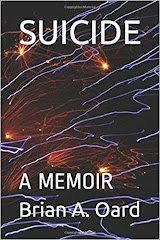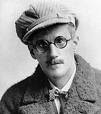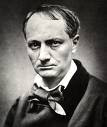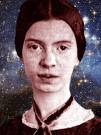Thursday, December 22, 2011
FINNEGANS WAKE film and Samuel Beckett's FILM online
Among the wealth of interesting stuff at UbuWeb (a site I've just discovered) is a complete online version of Mary Ellen Bute's obscure ca.1965 film Passages From James Joyce's Finnegans Wake. Also viewable online at the site is Samuel Beckett's inventively titled Film, starring Buster Keaton. In my brief initial visit, I also discovered--and listened to the zippy-paced first page of--a complete reading of Finnegans Wake performed by Patrick Healy. The 'Joyce Sound' page also features the soundtrack from the Strick Ulysses film and the well-known recording of Joyce reading from the Wake. Elsewhere on the site, visitors can watch Jean Genet's short film Un Chant d'Amour and clips from the later films of Orson Welles in the One-Man Band documentary. Check this site out.
Tuesday, December 20, 2011
Three Reasons to Learn German
There's an old European joke that becomes less true with every passing year: A person who speaks three languages is trilingual, a person who speaks two languages is bilingual, and a person who speaks one language is American. I'm an American who speaks English, French and enough Italian to make myself understood by silk-suited mafiosi on the Amalfi Coast (long story), but recently I've been regretting that my knowledge of German is limited to what I've picked up from old movies and reruns of Hogan's Heroes. (And let's face it, "jawohl, mein kommandant!" is not exactly a useful phrase in the Germany of today.) I've read most of the canonical krauts--Goethe, Holderlin, Trakl, Kafka, Mann, Grass, Celan, Sebald, Jelinek, Handke, Bernhard, et al--in English translation but now I'm frustrated by the fact that the following three major works of twentieth-century German literature have yet to be completely translated:
The Aesthetics of Resistance by Peter Weiss. Weiss is best known in the English-reading world as the author of that wild and crazy Sixties play Marat/Sade (which is still outraging Brits after all these years in a 50th anniversary RSC revival), but The Aesthetics of Resistance (a novel which can count W.G. Sebald among its admirers) is surely his prose masterpiece. A three-volume fictionalized account of leftist resistance to the Nazis (but that description hardly does it justice; it's like saying Sebald's The Rings of Saturn is a travel book), Weiss's book digresses into topics much further afield and begins stunningly with a description of the Pergamon Altar at the Berlin antiquities museum that cinematically 'pulls back' to show us the central characters walking and talking in and around the altar. It's a brilliant opening to a fantastic book, but unfortunately only the first volume has been translated into English. (And it's only available in a seriously pricey edition from the University of Chicago Press.) I hope translator Joachim Neugroschel and U. of C. Press intend to English the rest of this brilliant novel.
The History of Sensitivity by Hubert Fichte. This monumental nineteen-volume work of fiction and nonfiction (That's right, 19 freakin' volumes!! I guess the dude was pretty sensitive) is described on the flap copy of the Serpent's Tail edition of Fichte's Detlev's Imitations as "a dialogue with Proust's Remembrance of Things Past" that has "established [Fichte] as one of the great European writers of the twentieth century." Sounds like it's worth at least a partial translation, n'est-ce pas? Unfortunately, I haven't been able to find any of these books in English.
Zettels Traum (Bottom's Dream) by Arno Schmidt. The magnum opus of one of the 20th century's most original writers, this 1334-page Finnegans Wake-influenced novel might just be the single most important German literary work of the last century not yet translated into English. John E. Woods, whose recent English versions of Thomas Mann have won great acclaim, is reportedly at work on a translation to be published in the near future, presumably by Dalkey Archive Press. I eagerly await it.
The Aesthetics of Resistance by Peter Weiss. Weiss is best known in the English-reading world as the author of that wild and crazy Sixties play Marat/Sade (which is still outraging Brits after all these years in a 50th anniversary RSC revival), but The Aesthetics of Resistance (a novel which can count W.G. Sebald among its admirers) is surely his prose masterpiece. A three-volume fictionalized account of leftist resistance to the Nazis (but that description hardly does it justice; it's like saying Sebald's The Rings of Saturn is a travel book), Weiss's book digresses into topics much further afield and begins stunningly with a description of the Pergamon Altar at the Berlin antiquities museum that cinematically 'pulls back' to show us the central characters walking and talking in and around the altar. It's a brilliant opening to a fantastic book, but unfortunately only the first volume has been translated into English. (And it's only available in a seriously pricey edition from the University of Chicago Press.) I hope translator Joachim Neugroschel and U. of C. Press intend to English the rest of this brilliant novel.
The History of Sensitivity by Hubert Fichte. This monumental nineteen-volume work of fiction and nonfiction (That's right, 19 freakin' volumes!! I guess the dude was pretty sensitive) is described on the flap copy of the Serpent's Tail edition of Fichte's Detlev's Imitations as "a dialogue with Proust's Remembrance of Things Past" that has "established [Fichte] as one of the great European writers of the twentieth century." Sounds like it's worth at least a partial translation, n'est-ce pas? Unfortunately, I haven't been able to find any of these books in English.
Zettels Traum (Bottom's Dream) by Arno Schmidt. The magnum opus of one of the 20th century's most original writers, this 1334-page Finnegans Wake-influenced novel might just be the single most important German literary work of the last century not yet translated into English. John E. Woods, whose recent English versions of Thomas Mann have won great acclaim, is reportedly at work on a translation to be published in the near future, presumably by Dalkey Archive Press. I eagerly await it.
THE KINDLY ONES by Jonathan Littell
Many critics were much too kind to The Kindly Ones. Not only is Jonathan Littell's trainwreck mash-up of Ernst Junger, Gert Ledig, Georges Bataille and Aeschylus not a great novel; it rarely even rises above mediocrity. Littell's prose is bland and boring, and the narrative this toneless instrument is forced to carry achieves the rare feat of being both unimaginative and unbelievable. The prose (which I assume is as flat in the original French as in English translation--probably a safe assumption these days) might be defended as a deliberately bland narrative voice, an appropriately banal reflection of the evil banality of an SS bureaucrat's mind, but there are two major roadblocks on the way to this artistic justification: first, Littell's narrator, Maximilien Aue, is not a typical Nazi bureaucrat but an aesthete among the fascist elite, so one would expect his voice to be more florid, baroque, even Proustian; second, the opening line of the novel ("Oh my human brothers, let me tell you how it happened.") suggests that what follows will be a novel 'spoken' in a recognizable, idiosyncratic voice, a la the voices of Humbert Humbert or Dostoyevsky's underground man. Instead, Littell quickly loses this tone, and the prose becomes a merely competent, workmanlike wordstream remarkable only in its Nilotic length. The fact that this is exactly the kind of unremarkable, transparent prose we find in popular fiction (and no, I'm not going to invoke Gide, Camus, Robbe-Grillet and 'degree zero' writing; Littell's effort isn't good enough to merit that defense) suggests the proper way to read The Kindly Ones. For this is not really a 'literary' novel at all; it's a work of genre fiction, a big, bloated, research-intensive historical novel of the kind James Michener and Leon Uris used to write. It's tricked out in literary drag--allusions, quotations, intertextuality, philosophical discussions--but barely hidden beneath these gaudy rags is a book that Slavoj Zizek might call the "obscene supplement" of Herman Wouk's War and Remembrance. And about the novel's oft-mentioned 'obscenity,' its sexuality and scatology, perhaps the best that can be said is that fascism as anal sadism is a familiar and questionable idea, and it hardly merits a thousand-page dramatization. (Reading this novel, one gets the impression that Littell believes the classic psychoanalytic interpretation of fascism is an original idea he thought up one morning while masturbating in the shower.) All of that said, when The Kindly Ones is read as a historical novel, it's not all that bad. The historical reconstructions are well done and utilize the latest scholarship, and the meetings and discussions among SS officers probably come close to the reality of Nazi evil in its banal, bureaucratic form. If readers can overlook all the poorly digested research that the characters disgorge like Aue's many vomited meals, it's a decent piece of historical fiction. But there's really no reason for it to be 975 pages long. It's not War and Peace; it's not even War and Remembrance.
Sunday, December 18, 2011
W. G. Sebald at 17, a photograph of a photograph
From 8mobili's photostream on Flickr, here's a photograph of W. G. Sebald's 1961 blood donor card, containing a photo of the author as a 17 year-old young man. Since the only familiar images of Sebald show him in the last two decades of his life, there's a slight shock in realizing that he was once this moody-looking Bavarian youth.
Subscribe to:
Posts (Atom)









